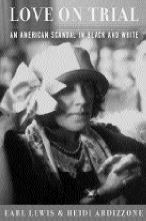RICHARD RUSSO
Elliott Bay Book Co., 101 S. Main, 624-6600. 7:30 p.m. Tues., June 5
RICHARD RUSSO TAKES my phone call at his house in coastal Maine during a break in his typical seven-hour writing day. At first he sounds as if his latest novel, Empire Falls, feels far away from whatever fictional world he’s now creating, but soon his voice rouses and warms. . . .
Seattle Weekly: Does Empire Falls reflect your sense of America today?
Richard Russo: Pretty closely. When I lived in Waterville, Maine, a multinational company bought the local shirt factory and threatened to shut it down if it wasn’t more profitable. The employees, who’d worked there all their lives, did overtime at lower wages for a year to save the place, but it got closed anyway—their extra work just enriched the owners. My grandfathers made shoes, made gloves, but what’s made in America now is mostly money.
Is Francine Whiting, the witchy corporate CEO character in Empire Falls, a version of Miss Havisham from Great Expectations?
Dickens is a big influence, and not a day goes by without Miss Havisham on my mind, but I don’t believe in witches. I do believe in evil—Catholicism got dug in pretty deep when I was a kid. Still, nobody’s a witch or a saint. Francine’s a complex woman. She’d be the smartest person in most roomfuls of people today. There are moments when I like Francine. I like Miss Havisham at times.
Your dippy character Janene—is she right when she accuses her husband (and Empire Falls protagonist) Miles of never having loved her?
Janene’s both right and wrong. Miles doesn’t know yet that love as pure as his feeling for his daughter is rare between adults. In my books I seem to keep trying to figure out what love means. What does it mean when people at odds—like Miles and Janene—suddenly feel affection for one another? [Laughs.] Mostly we delude ourselves, thinking we know what love is.
Is there something you’d like today’s young writers to know?
Well, many of them seem to think sentimentality is a literary sin. I support writing programs, but one unfortunate side effect is a cool, detached tone— technically excellent stories with unclear emotional centers. The main characters tend to be fairly perfect, as if the writers think it’s wrong to like imperfect people. The writers miss their own feelings because they fear stepping over an emotional line. I think it’s better to step over the line than never get near it.







